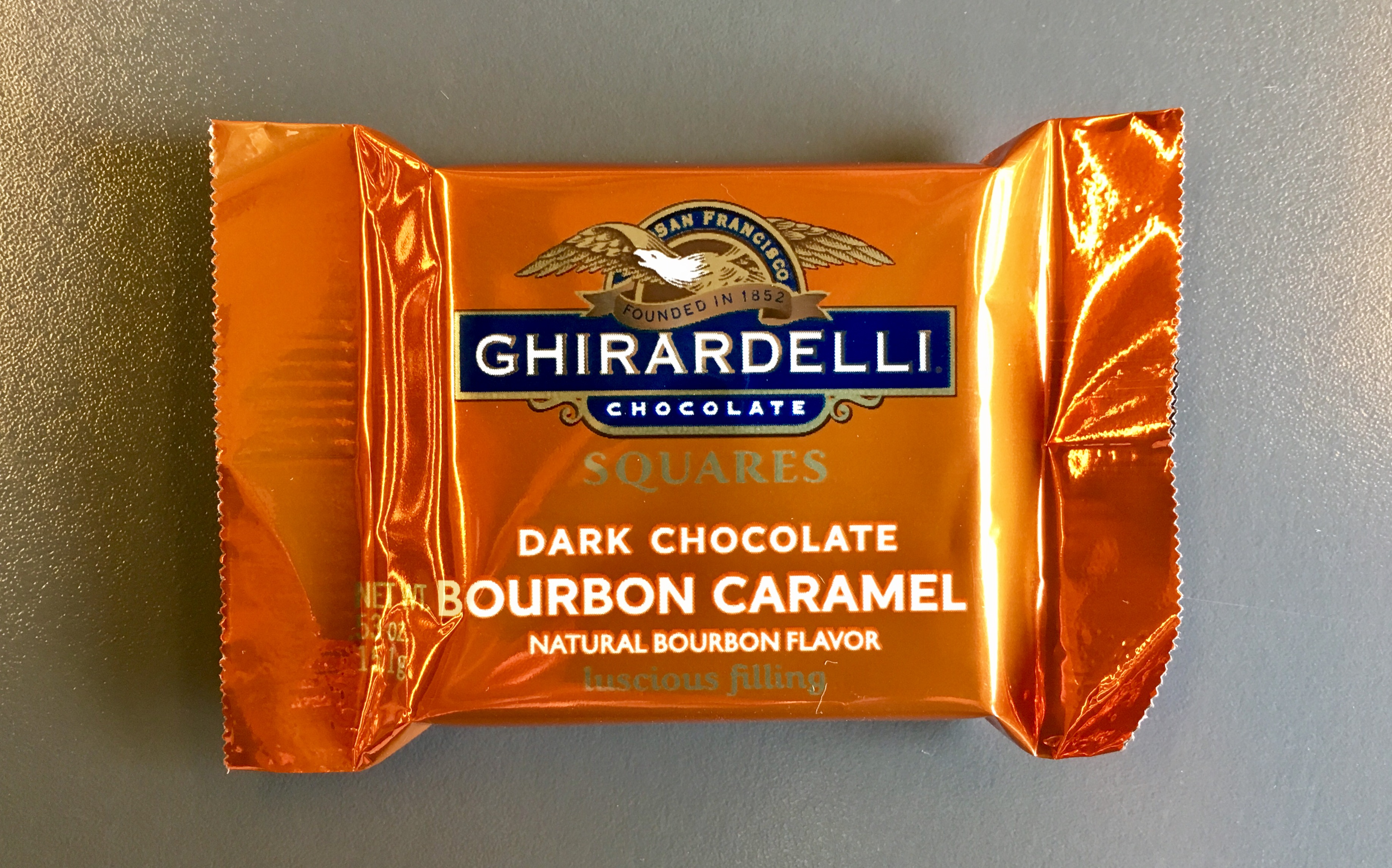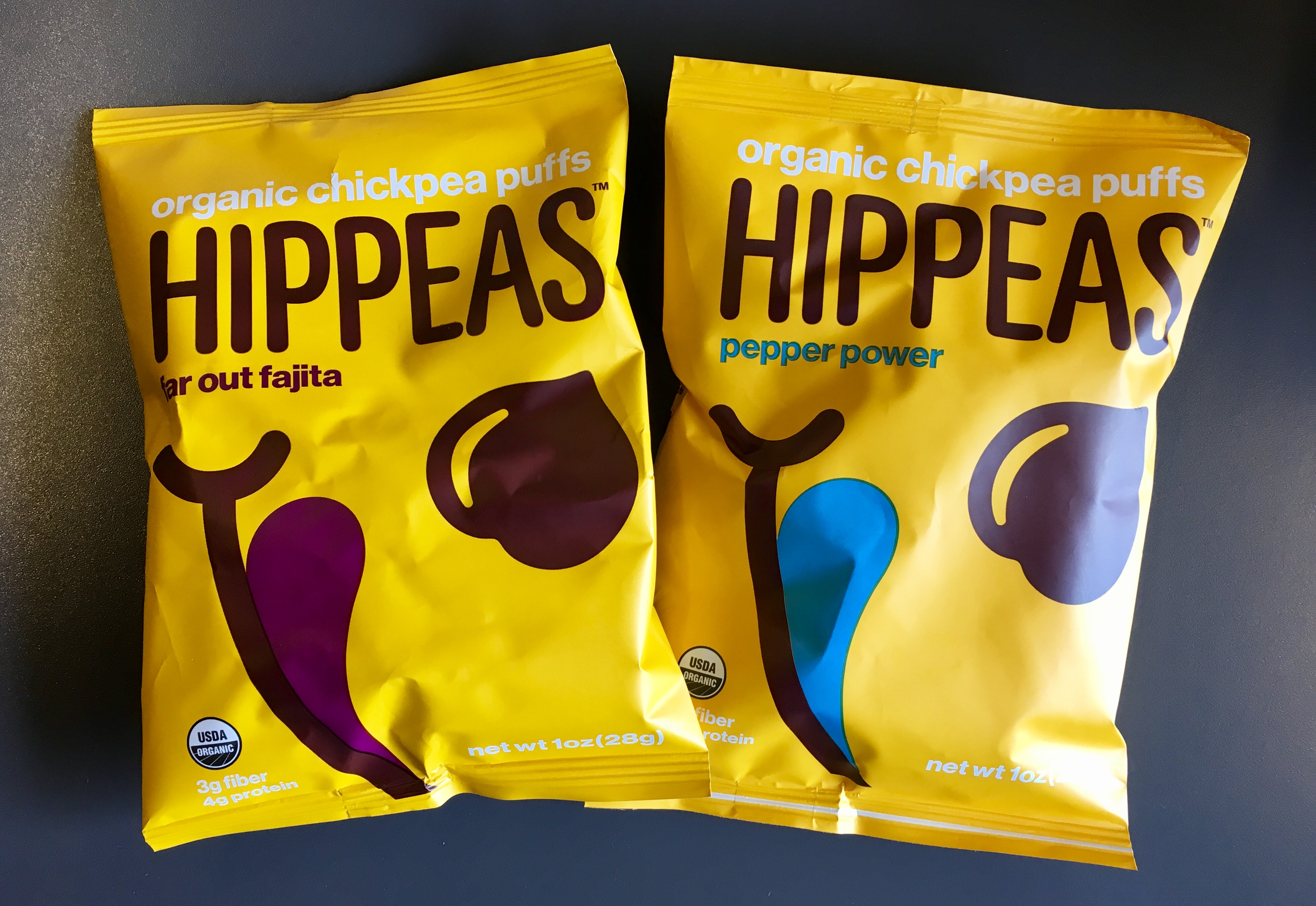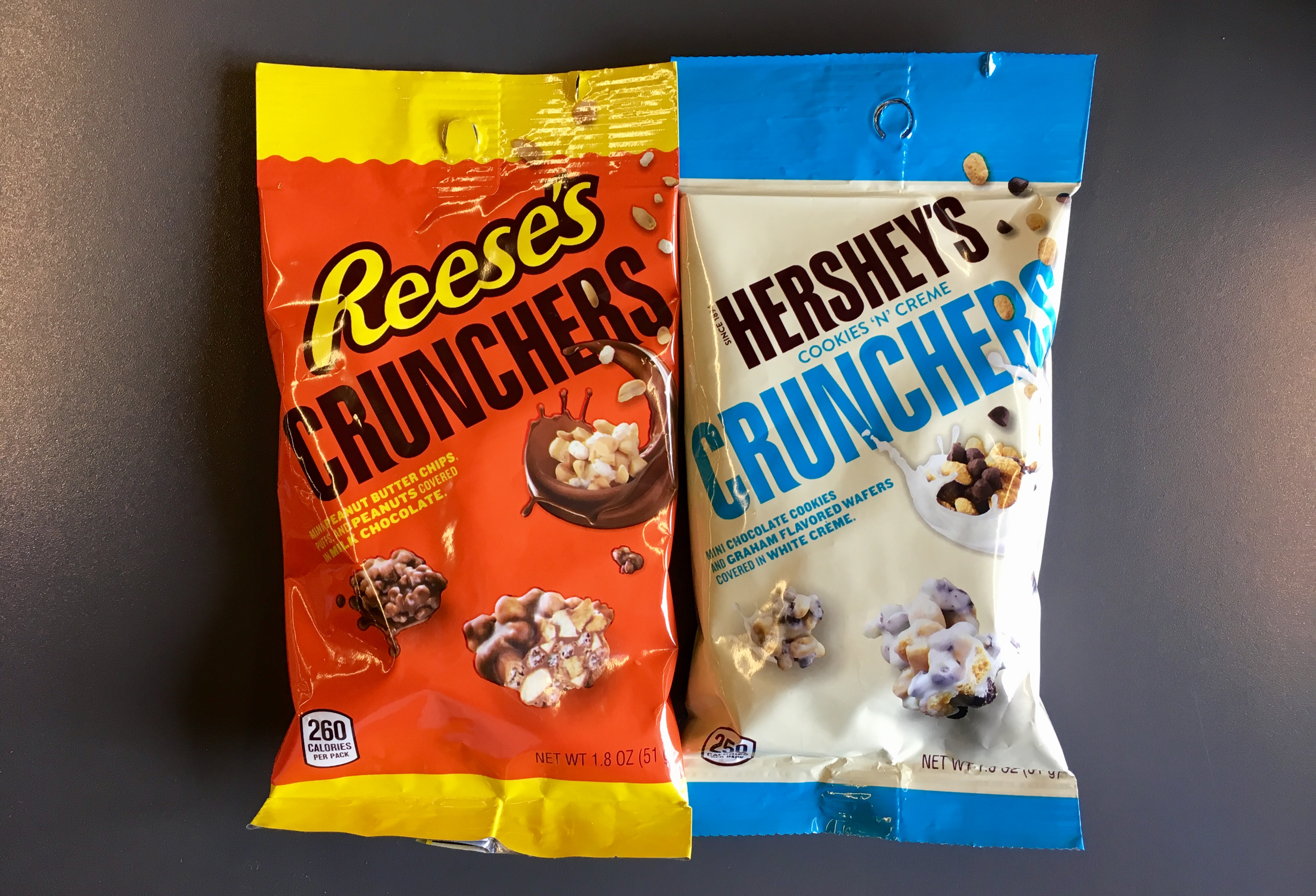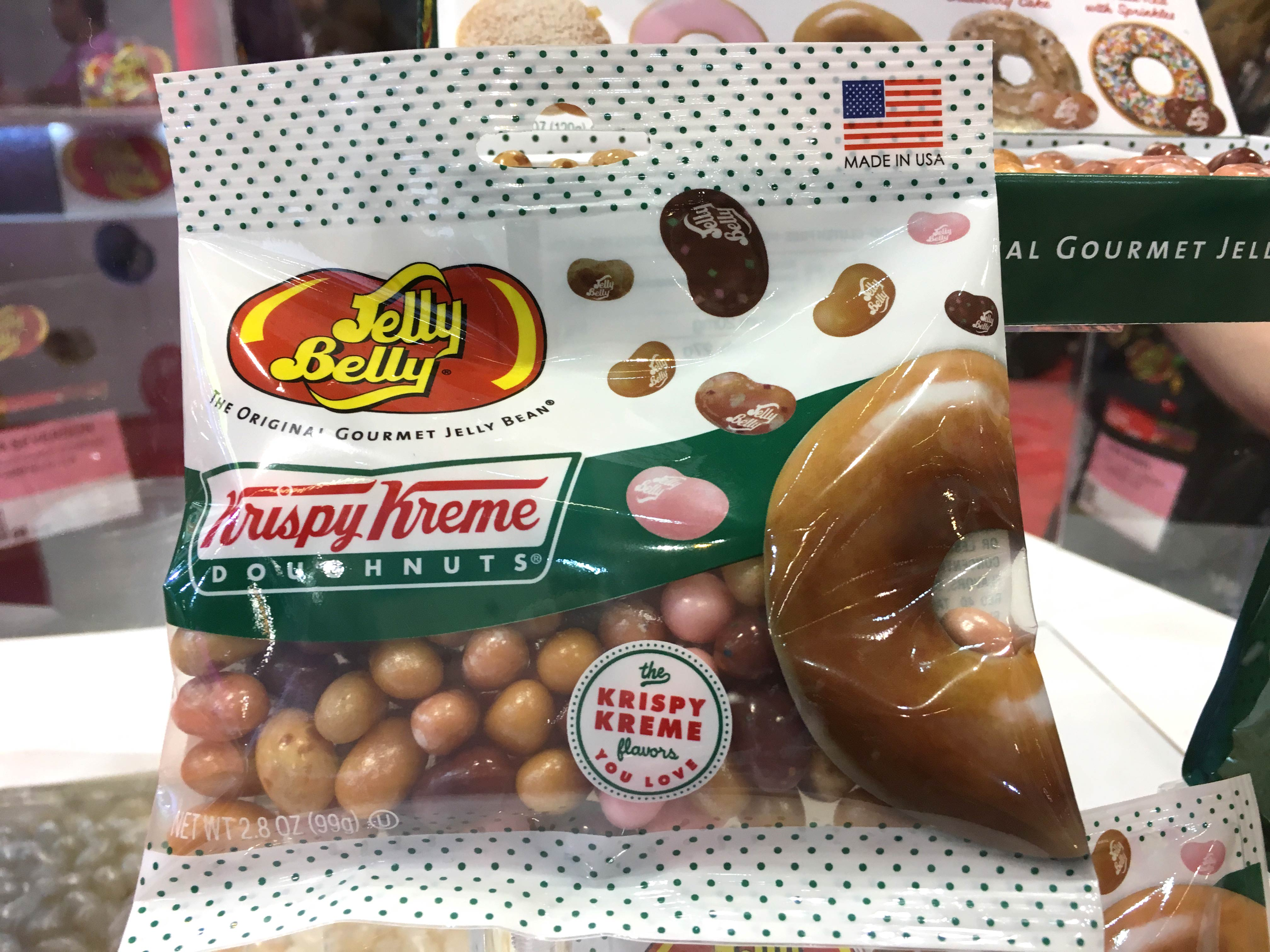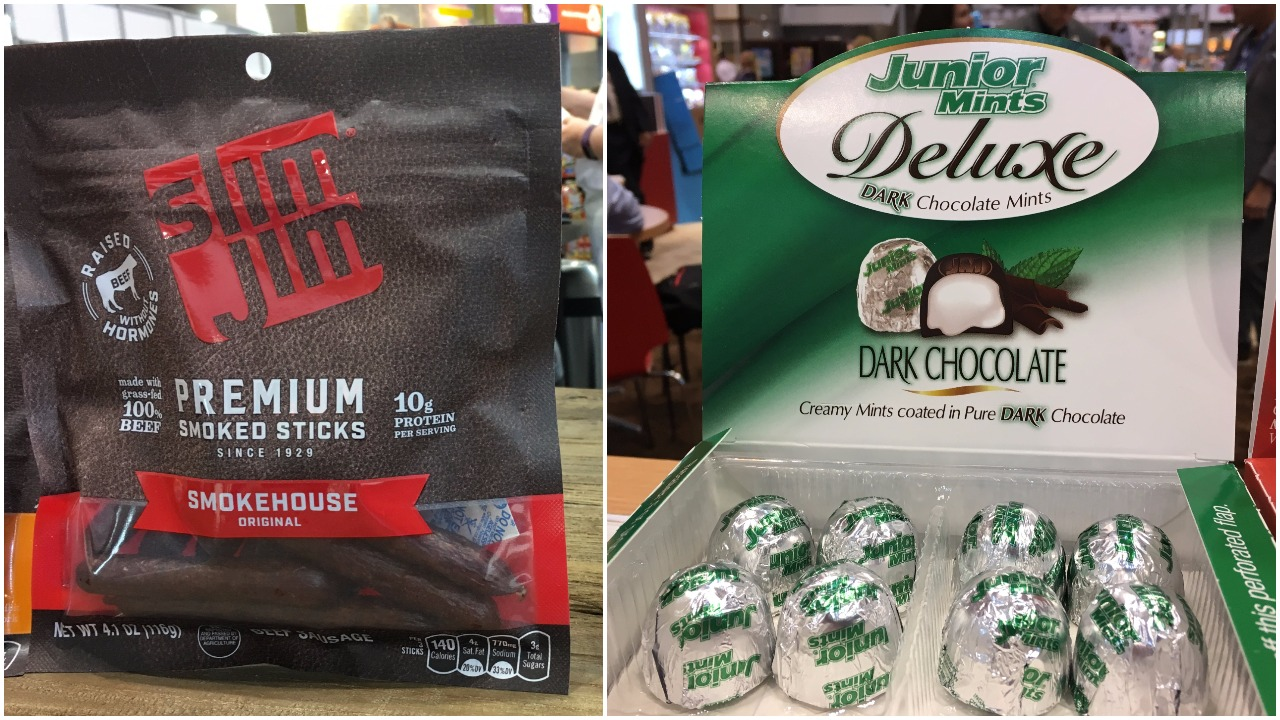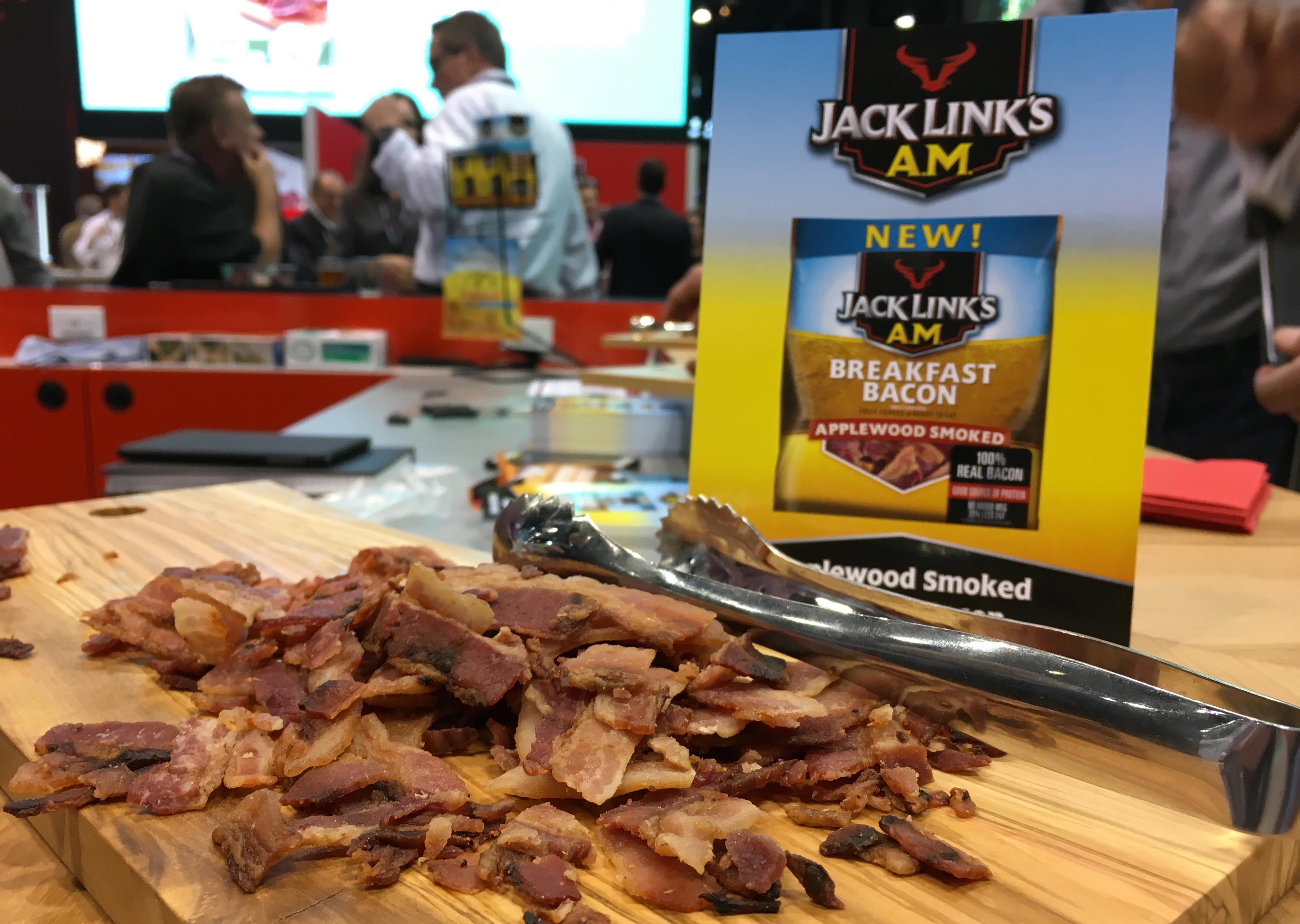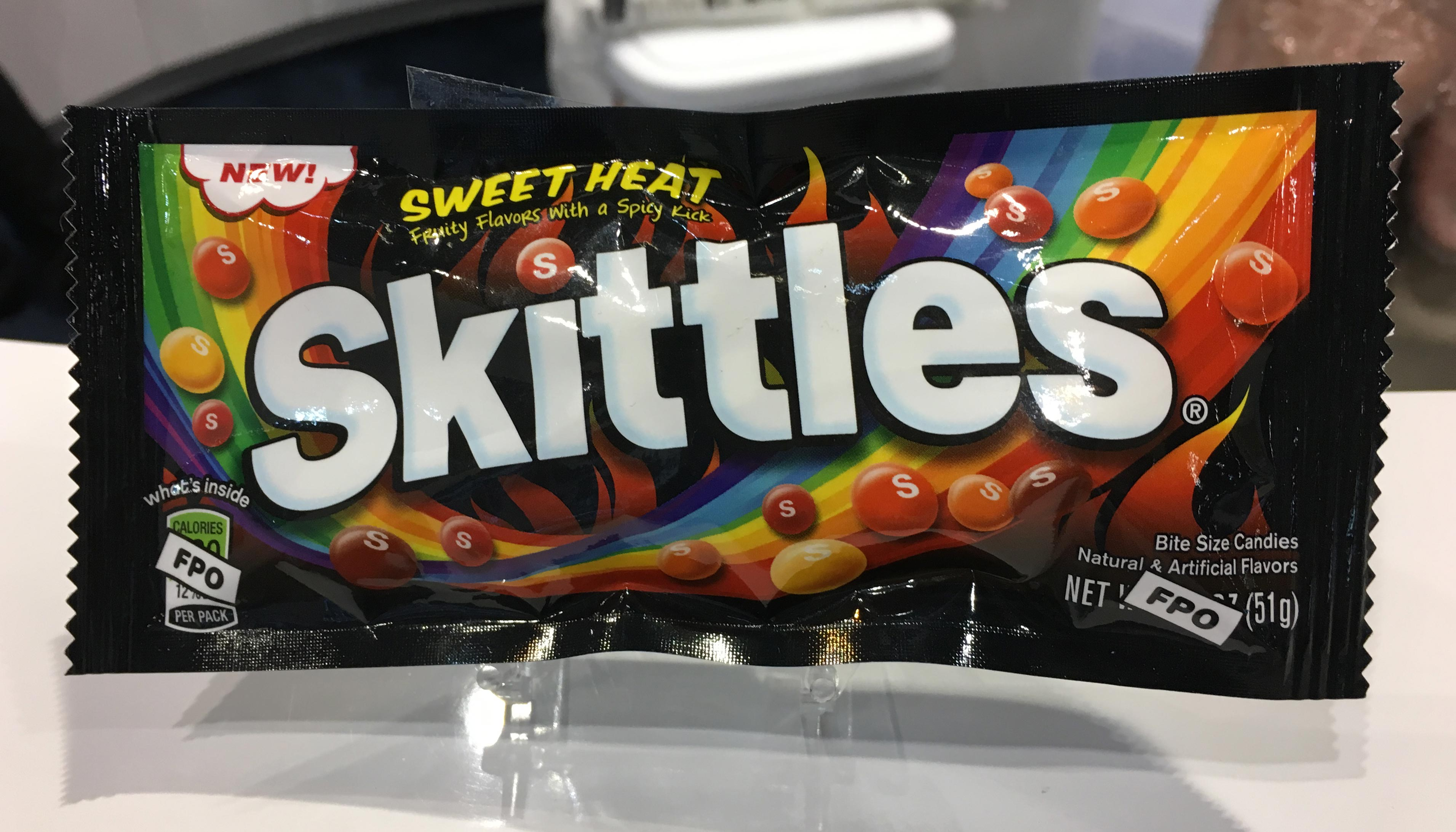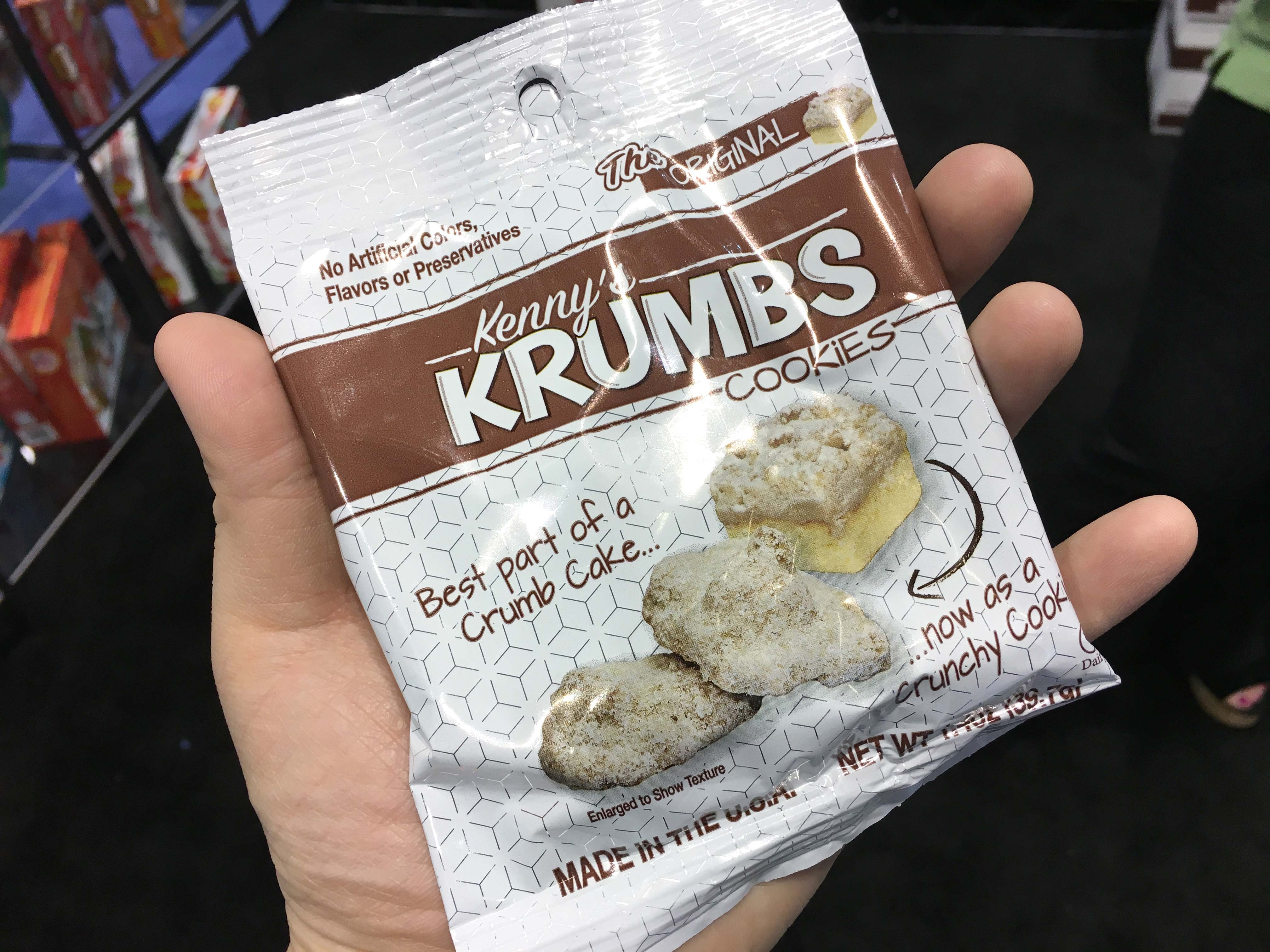Our Strange, Tasty, And Curious Finds From The Sweets & Snacks Expo
We writers, needing constant fuel to pen our hot takes, require some sort of snack in our mouths at all times. We're not being immodest when we say we're connoisseurs of any fun-size foods.
So when the annual Sweets & Snacks Expo comes to The A.V. Club's hometown of Chicago, it's both Christmas and Halloween rolled into a three-day extravaganza. There are hundreds of free samples of chocolate, candies, beef snacks, and chips to be consumed at this convention, so much so that our bloodstreams and kidneys cry for mercy.
More importantly, it's an opportunity to preview what's coming next in the world of candies and snacks. These are some of our more notable finds from the 2017 iteration of the Sweets & Snacks Expo.
Grenades gum
Grenades operates on a dare: Can you handle a mint chewing gum so minty that adjectives like "explosive" are used? I tried one of the level 10 "super-uber" mints (not yet released on the market), and indeed, I was grimacing by its spicy, sinus-clearing mintiness five seconds in. This is the gum equivalent of a Flamin' Hot Cheetos.
Ghirardelli Dark Chocolate Bourbon Caramel Square
Every year, the San Francisco-based chocolatier adds at least one delicious new flavor to its line of chocolate squares: A couple of years ago they hit a peak with sea salt-caramel, and that now has some serious competition with this, a bourbon caramel chocolate featuring a delicious smoky booziness.
Hippeas
It's been trendy for the past few years to introduce healthier alternatives to potato chips, and the almost cleverly named Hippeas in squarely in that market: Their puffed snacks are made from chickpea flour, and come in flavors that Tommy Chong could appreciate, like "Far Out Fajita." And they're pretty tasty.
Reese's and Hershey's Crunchers
It must get exhausting, trying to recombine familiar ingredients into new presentations, but the big candy companies keep trying. At least these Crunchers sort of leave their antecedents far behind: The Reese's one doesn't taste anything like the classic peanut butter cup—it tastes exactly like a muddy buddy—and it is quite delicious. The Hershey's entry—cookies 'n' creme—tastes more like white-chocolate-covered breakfast cereal. Not so good.
Krispy Kreme-flavored Jelly Belly jelly beans
Just as sure as the sun will rise in the east, it's a certainty that every year Jelly Belly will introduce some novelty flavor in jelly-bean form. For 2017, Jelly Belly is debuting five Krispy Kreme doughnut flavors. But without the tactile, warm, crisp pleasures of a doughnut, all you're getting in these jelly beans is a cloyingly sweet hit of vanilla cake flavor.
“Deluxe” versions of old standbys
Call it classing up the joint or simply trying to reach a more sophisticated and demanding consumer, snack makers are developing "premium" and "deluxe" versions of old standbys, such as an all-beef and all-pork version of Slim Jims and dark chocolate single-servings of Junior Mints.
Jack Link's A.M. Breakfast Bacon
The issue here isn't so much that it's bacon jerky—a category of snack that has taken off in the last four years—but more so Jack Link's branding suggesting that meat snacks should be considered a breakfast food. Its new "A.M." line hammers home the word "breakfast" on its labels ("breakfast bacon" and "breakfast sausage," as if breakfast weren't already implied), in the hopes that rather than eating a balanced breakfast, consumers might substitute meat snacks for a quick hit of protein.
Sweet Heat Skittles
Truth in advertising: Sweet Heat Skittles taste like your standard Skittles—sweet and tart—but roughly eight seconds into chewing, a dull but noticeable chili-like burn develops on your tongue. This won't be out until January 2018, however.
Delicrea bubble-gum sand
From Mexico comes a not-yet-released product called Delicrea, which begins as moldable play sand and transforms into bubble gum. It comes in cherry and blueberry flavors.
Kenny’s Krumbs cookies
Continuing the trend of discarding anything that won't elicit maximum pleasure (read: muffin tops), Kenny's Krumbs replicates the crunchy baked top of a crumb cake. It's like biting into a cookie version of a Cinnabon.


